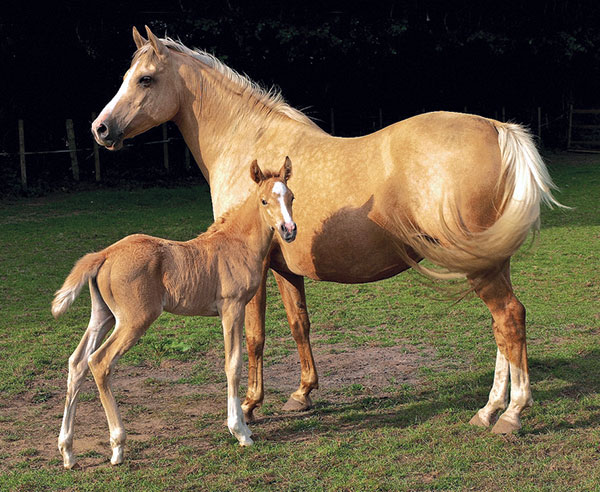By Daniel H. Grove, DVM

Foals are hitting the ground left and right. It is a rare day for me right now to not be doing a new foal exam (or two or three!). A new foal exam and care in the first few days is vital to keeping a healthy herd, but the first year of life for foals requires some special care that is a bit different than for the adults.
In the first month or two, some important needs must be addressed. First off, the first deworming. I usually start at one month of age and use a double dose of fenbendazole. This is good for roundworms which is the biggest concern at this age. Next, we need to evaluate the limbs. If we had contracture or laxity issues, that should have been addressed in the first week or so after the new foal exam. Various angular limb deformities may need attention with trimming, shoes, or other more aggressive treatment depending upon their severity. An additional item to check off the list at this time is if we have an umbilical hernia to resolve. Depending upon the size, you and your veterinarian may choose to watch it, band it, clamp it, or surgically repair it. I do all of these procedures and they all work great if you choose your case appropriately.
After the first couple of months with a more frequent deworming schedule, next on the list is the first vaccines. The timing of these will be based of the brand of vaccine, diseases vaccinated for and some personal preference of your veterinarian. Most of my clients I start the first vaccines at six months of age. For most of the vaccines a follow up booster is done three to six weeks later. Some of the vaccines even require a third booster shot. It is vital to get the best immunity possible from the vaccines to follow the established schedule of boosters. Just giving the vaccine once, for most of these vaccines, will result in little acquired immunity for the diseases.
Lastly, we need to get to our first dental appointment. Up until now, your veterinarian should have had some quick peeks at your foals teeth to make sure they are lined up normally in the front, but now it is time for their first sedated dental exam along with taking care of any sharp points. I usually do this in their yearling year before they are going to have any kind of bit in their mouths. It is amazing to me the little razor blades they can have for teeth in there and yet people do not even notice any difficulty with them chewing their food. Here your veterinarian will sedate the horse, inspect for abnormalities on the oral cavity and deal with the sharp points on their premolars and molars. If you want to have the wolf teeth removed, now is a great time.
After all of this, your now-juvenile horse is ready to grow up and be an adult. Hopefully you have not had that first cut to be sewn up, or OCD lesion to get resolved and when your horse has matured and you can start it, you will now get to enjoy riding this little creature you have raised. Trust me, we veterinarians take huge pride in watching the ones we get to follow from conception throughout their lives just like you do. We may not be their owners, but we feel a lot of pride and joy from them!
–Dan
Leave a Comment
All fields must be filled in to leave a message.